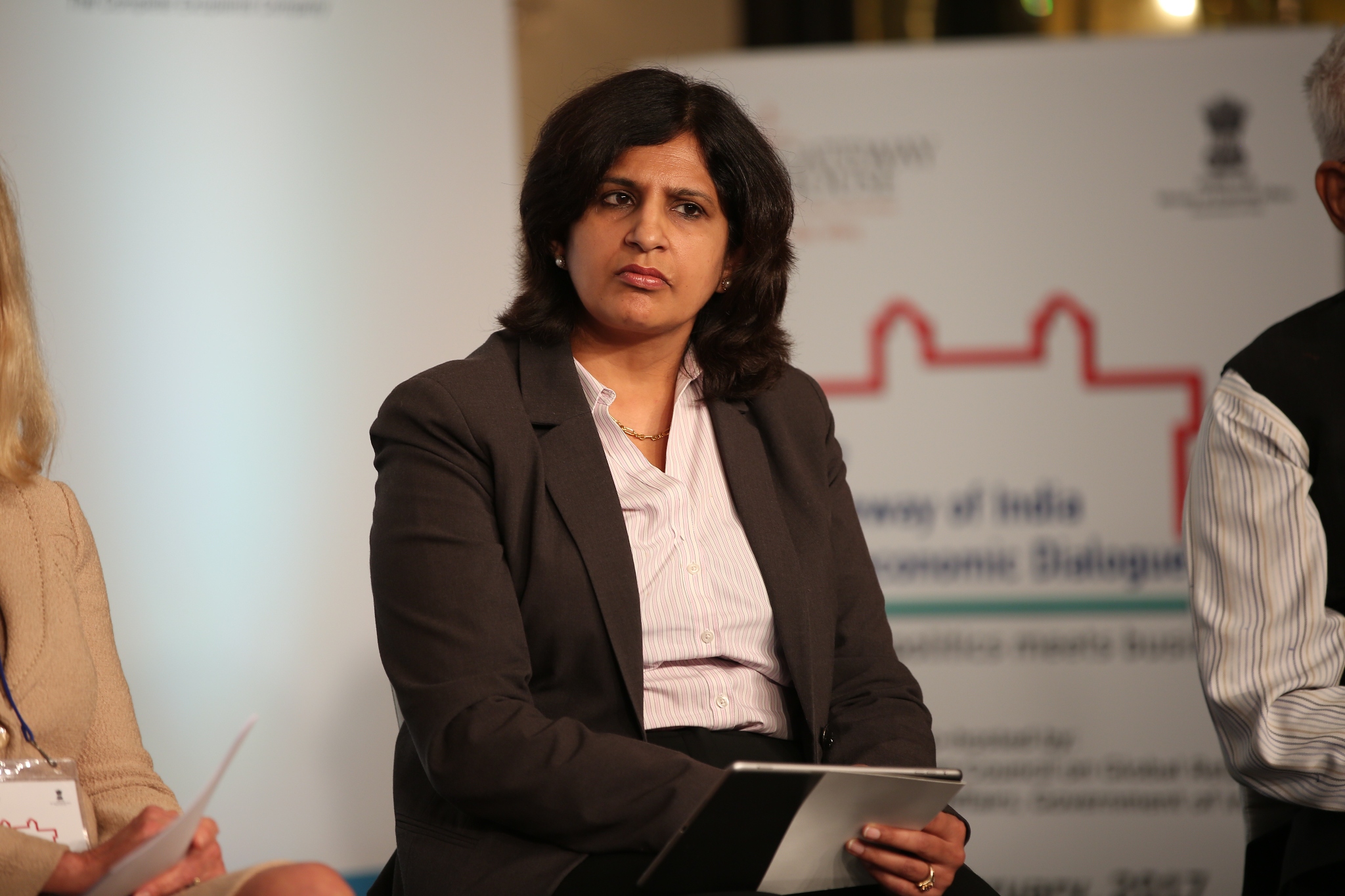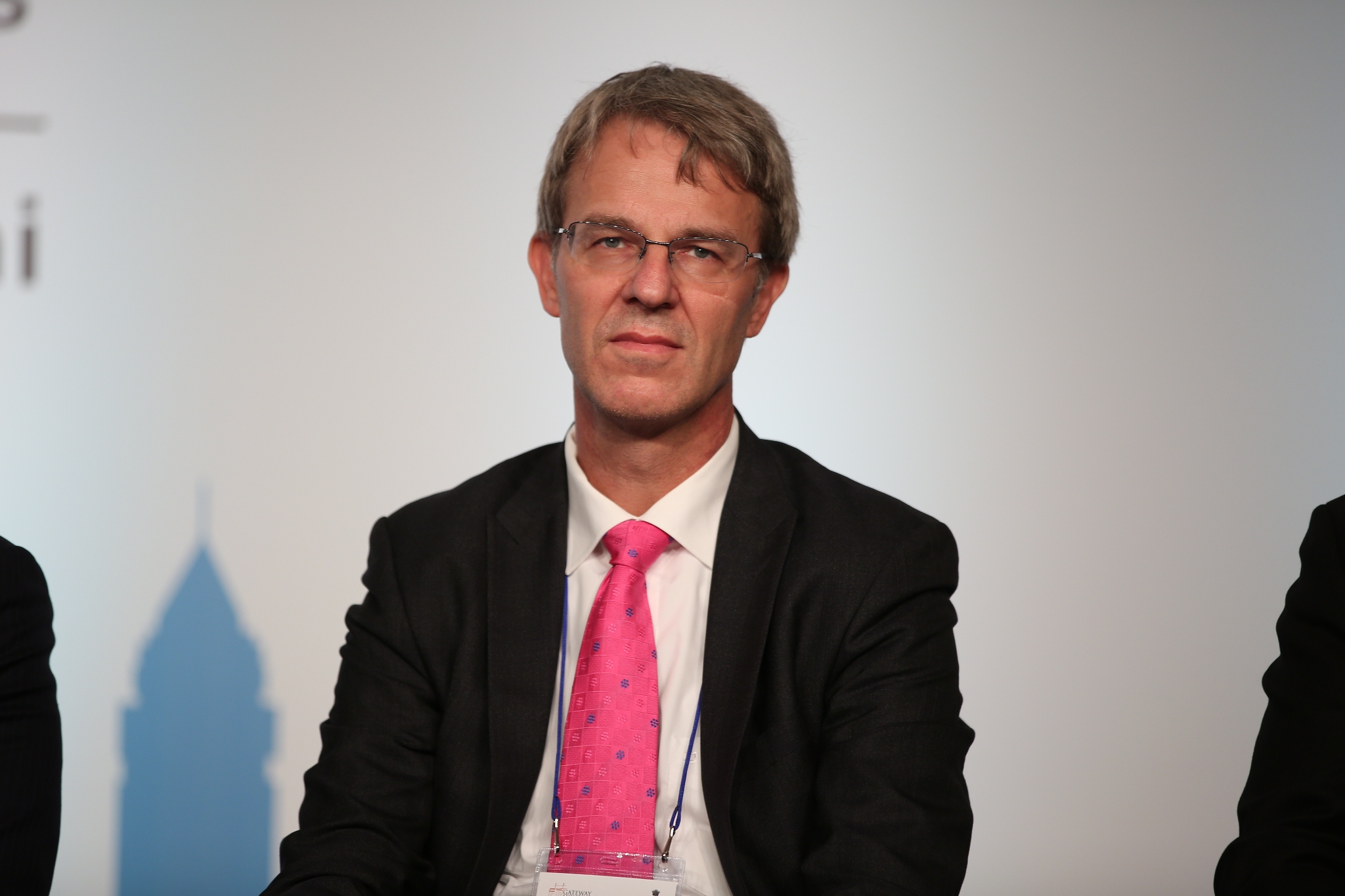Legislating cyberspace
Marina Kaljurand, Chair, Global Commission on Stability of Cyberspace, Brussels, Belgium, said governments had to collaborate closely with lawyers, and the private sector, which is leading some major developments
Marina Kaljurand, Chair, Global Commission on Stability of Cyberspace, Brussels, Belgium, said governments had to collaborate closely with lawyers, and the private sector, which is leading some major developments
In OECD rankings, Israel frequently occupies top position for its investment in Research and Development. Deborah Housen-Couriel, Former member, Director-General’s Bureau, Israel Ministry of Communications & Fellow, Interdisciplinary Cyber Research Center, Tel Aviv University, Israel, in conversation with Gateway House
 Courtesy: Gateway House
Courtesy: Gateway House
In Monica Bhatia's interview, she discusses the changes in the global financial sector in the wake of the Panama papers and the HSBC files, mainly the increase in transparency between banks and governments. She highlights her belief in the Automatic Global Tax Information Sharing Network in countering tax evasion and the success of the methods that governments have already undertaken to enable voluntary disclosures. Lastly, she illustrates the measures under the BEPS system on tax compliance.
 Courtesy: Gateway House
Courtesy: Gateway House
Clas Neumann in his interview envisions the new type of globalisation that the digital economy has created. The increase in distribution of work and revolution of global supply chains. He discusses the winners and losers of the changes in the H1B visa systems, specifically the brain drain reversal, and the alterations the Indian business model needs to make to adjust to these changes. He further emphasises on the idea that for technology companies to foster and develop, their closeness to "innovation clusters" is most important. And describes the role of governments in enabling the cultivating of digital spaces and digital cities.
Sharad Sharma, co-founder, iSpirt, talks about Prime Minister Modi’s visit to the Silicon Valley on September 27. In an in interview to Gateway House, he outlines the steps that would make Modi’s visit a success for Digital India campaign and other key issues.
Earlier this year, Gilead Sciences, a California-based pharmaceutical company, made the headlines for an unusual, positive move in the fraught property rights space. It entered into a license agreement with seven Indian pharmaceutical companies to manufacture lower cost versions of Sovaldi, its popular Hepatitis C drug
Yusuf K. Hamied, the chairman of Cipla, talks about the forthcoming meeting between Prime Minister Narendra Modi and U.S. President Barack Obama. Speaking to Gateway House, he says he expects Obama to put pressure on India to change its position on patents
The annual India-Japan Prime Ministers’ summit, held recently in Tokyo, charted the path for increased Japanese assistance in India’s infrastructural arena. Gateway House interviews Soichi Yamamoto on the potential of this bilateral engagement
The Indian Supreme Court’s verdict in the Novartis case over patent rights has opened up the debate on intellectual property rights (IPR) in India, and globally. Gateway House interviews Narendra Sabharwal, Chair, IPR Committee, FICCI, to discuss the role of IPR and public health concerns in emerging economies.
The recent crisis at Infosys suggests that corporate governance in India’s IT sector has been slipping. Gateway House talks to T.V. Mohandas Pai, former CFO of the company, about what the Indian IT industry and the government can do to raise global competitiveness and remain recognised as centers of innovation